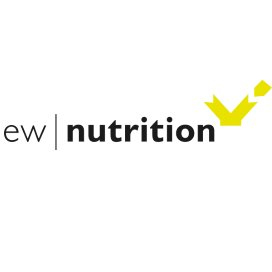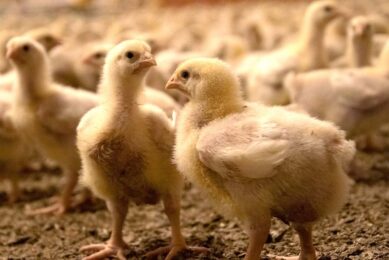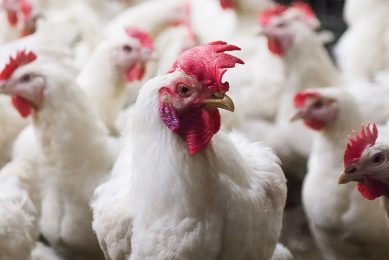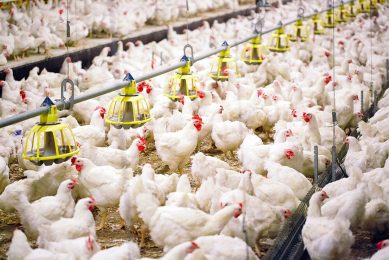Phytogenic additives for poultry: An ROI calculation
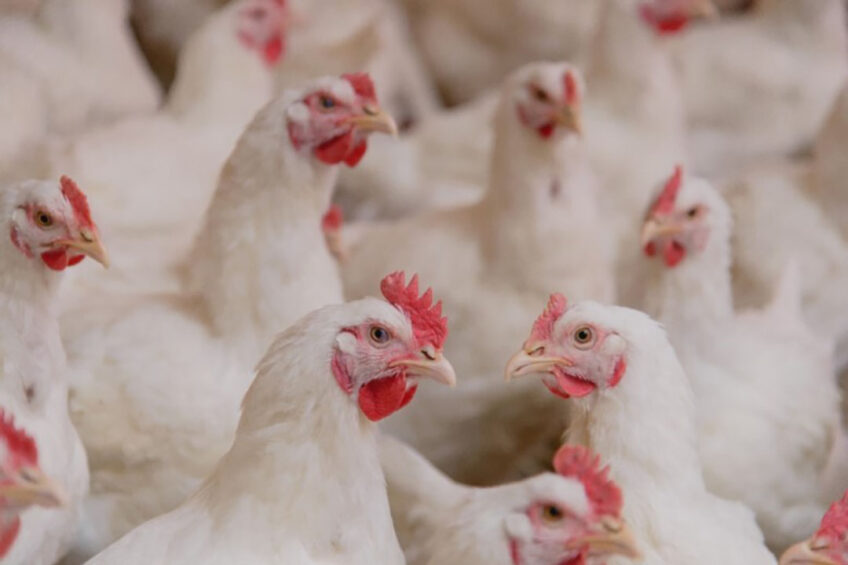
The use of modern delivery system technologies is necessary in today’s high-performance poultry sector. EW Nutrition are experts in the development of phytogenic feed additives which play an increasingly important role in the health of poultry flocks.
Global trade in agricultural products has a direct impact on the added value in regional broiler production. Due to fluctuating meat and feed prices, a tight profit margin can quickly melt away. Often, in such a financially critical situation, there is also increased disease pressure on the flock. Changes implemented to deal with reduced margins may, on the other hand, drastically affect flock health.
For these reasons, it is extremely important to improve broiler gut health, as only healthy birds will perform and become profitable for producers. Flock performance can be maintained through preventive management measures, a consistent hygiene concept and the use of high-quality feed. In the case of an easily raised flock, the same measures also positively affect profits.
What eats your return on investment (ROI)?
In broiler production, the cost of feed represents 60-70% of total production costs. The proportion tends to be higher in markets that rely on the import of feed raw materials.
For example, using a compound feed price of €300/t as the basis, an increase of €10/t results in a reduction of profit of €0.016/kg live weight. On the other hand, an improvement in feed conversion from 1.60 to 1.55 results in a financial advantage of €0.015/kg live weight. In any case, the best possible feed efficiency is desirable to keep production costs low.
Another risk factor for high-yield broiler production lives in the poultry intestines – the greatest ‘invisible’ losses result from subclinical necrotic enteritis (Clostridium perfringens). This disease worsens feed conversion by, on average, 11%. In the previous example, this would mean a reduction in feed efficiency from 1.60 to 1.78 points and would reduce the contribution margin by €0.054/kg live weight. In addition, a live weight reduction of up to 12% can be observed. It is therefore critical to stabilise gut health to reduce the risk of subclinical necrotic enteritis.
Practice prevention for a secure ROI
The prophylactic use of antibiotics in compound feed was a well-known reality for decades. With the EU-wide ban on the use of antibiotic growth promoters, the occurrence of multi-resistant bacteria, and a globally increased demand for antibiotic-free chickens, producers have now had to cut down on antibiotic use.
For this reason, alternative measures have been evaluated in recent years and their potential for maintaining a good broiler health has been assessed. Studies have confirmed that setting up a comprehensive hygiene concept to reduce the formation of biofilms on stable surfaces and to reduce the recirculation of pathogens is a solid basis. At every stage of production, irregularities can be detected through intensive control of the performance parameters and health monitoring focused on the symptoms of illness. Through targeted measures, diseases can either be avoided or at least recognised earlier and treatment can be carried out more efficiently.
Feed additives for intestinal stability
To promote the development of a balanced intestinal flora, hygienically impeccable compound feed is the wish of every animal producer. However, the quality of the available raw materials is subject to fluctuations and can therefore not be 100% anticipated. Consequently, producers are now commonly balancing these uncertainties with the use of feed additives, which have a positive influence on intestinal flora.
For example, a distinction is made between whether living microorganisms such as probiotics are added to the intestinal flora, or whether the targeted addition of phytomolecules indirectly stimulates the intestinal flora and the intestinal epithelium. These feed additives must clearly prove their positive effects in scientific studies before they can be used in practice.
A solution: Encapsulated phytogenic feed additives
In the case of phytogenic feed additives, the use of an encapsulation of naturally volatile substances has become established. This protective cover, which is often realised in the form of a simple coating, provides good storage stability in many cases. However, in addition to the high temperatures, mechanical forces also act on these coatings during pelleting. The combination of pressure and temperature can break the protective coating of the product and lead to the loss of active substances.
A complete solution: How Ventar D maximises your ROI
Because of the difficulties mentioned, the use of modern delivery system technologies is therefore necessary. EW Nutrition has many years of experience in the development of phytogenic feed additives. Due to an original, innovative delivery system technology, Ventar D offers high pelleting stability for optimal improvement of animal performance.
In particular, the positive influence of the phytogenic feed additive, Ventar D, on intestinal health under increased infection pressure was assessed in multiple studies. In 2 studies carried out in the UK, birds were challenged by being housed on used litter harvested from a previous trial. Moreover, increasing levels of rye were introduced into the diet, adding a nutritional challenge to provoke an increased risk of intestinal infections in the broilers. The use of Ventar D at 75 g/t compound feed resulted in an increase in performance of 4.1% of the European Production Efficiency Factor (EPEF), with an improvement in feed efficiency from 1.63 to 1.60.
With Ventar D used at 100 g/t compound feed under comparable conditions, the effects on EPEF increased by 8.9% and feed efficiency improved by 5 points (0.05).
Another study was carried out in the US. In addition to performance parameters, data on intestinal health were also recorded. In the group fed with Ventar D (100 g/t compound feed), 50% less necrotic enteritis-related lesions of the intestinal wall were found after 42 days. Compared to the broilers fed with Ventar D, the control group of birds showed a performance decrease of 11.8% with a final fattening weight reduced by 8% and a 3 point poorer feed conversion rate.
The following tables present performance parametres after 42 days:
The future of feeding is here
The study results of the new feed additive, Ventar D, show the potential of phytomolecules. A reliable delivery system ensures a constant number of active molecules released in targeted sites in the intestines, and therefore support favourable intestinal flora. In flocks with subclinical intestinal infections with Clostridium perfringens, as well as unspecific increased infection pressure, the growth performance and productivity of broilers are improved, and production profitability is ensured.
References available on request.


